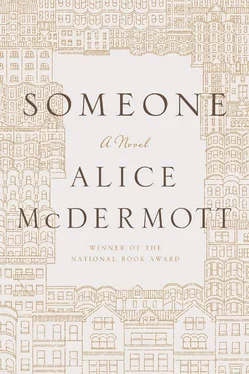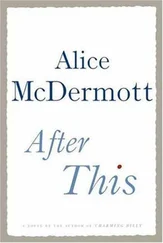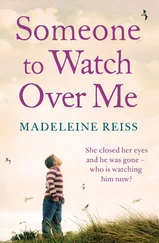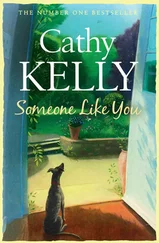Tom laughed. “Never assume,” he said. He drew the word in the air, circled the first part and the last: this was not a new routine. “You’ll make an ass,” he said, circling, “out of u and me.” The girls were bearing with him, love and pity in their eyes and their smiles. “You ever explain it to the old pastor?” he asked Gabe.
“I did,” Gabe said. I wondered at the bond between these two, strengthened further, perhaps, by those weekly conversations in the men’s ward. “But he wasn’t much interested,” Gabe added. “We had bigger fish to fry by then.”
Helen said, hunched over her dish of ice cream, the spoon in the air. “How come you’re not still a priest? You didn’t like it?”
I felt what would have been my mother’s impulse to grab her by the upper arm and lead her from the table. Susan said, delightedly indignant, “Helen,” confounding the rudeness of the question by acknowledging it. But Helen’s face took on Tom’s look of innocent uncertainty. Guileless. Was that wrong?
Gabe said, kindly enough, “It was the greatest privilege of my life, to be ordained.” The rest of us were silent. He was looking at Helen alone. “But after my father died, I couldn’t see leaving my mother, and your mother, to live alone. Someone had to be there,” he said. He put his tongue in his cheek, moved his mouth as if he tasted something sweet. “Your mother couldn’t cook, you know. And she had some wild oats of her own. Someone had to be there to guide her.”
“There you go,” Tom said happily. He nodded, as if the matter was settled, now and forever. It only took the asking. “And think about this,” he said to the two girls. “If it wasn’t for your uncle coming back home, your mother and I would never have met, which means you wouldn’t be here, we wouldn’t be here,” and he gestured, dramatically, taking in the whole house. “So say thank you to the man. Thank him for changing his plans.”
The girls, laughing, puzzled, bowed their heads. “Go on,” Tom said, encouraging them, overdoing it, I thought.
“Thank you,” Helen murmured, smiling, into her plate. Susan shook her head and said in a singsong, mocking way, “Thank you, Uncle Gabe.”
After dinner, I invited him for a walk around the neighborhood. It was dusk. Sprinklers were going on the darkening squares of green grass, and neighbors on webbed lawn chairs raised their hands as we passed by. Gabe smoked. I reminded him of the long walk we’d taken when I was seventeen, when Walter Hartnett had broken my heart. “Seventeen,” he said, and shook his head. He remembered it. He looked straight ahead as we walked, and he held his cigarette low against his thigh, cupped inside his hand. “I can’t imagine anything I said was any help to you.”
“It was,” I said.
“Walter Hartnett,” Gabe repeated the name. “The kid with the bad leg. Bill Corrigan’s right-hand man. Poor Bill.”
And I added, “Poor Walter, too.”
Gabe said, “You can’t blame a man for saying he’s had enough pain.”
I supposed he could have been referring to either one of them.
There was the suburban smell of cut grass and honeysuckle, the sounds of televisions and radios, there were the halos of lampposts, house lights coming on. It is solved by walking, he had said. He had walked out into those ravaged streets of the old neighborhood, naked, weeping.
“You’re welcome to stay, you know,” I told him. “The upstairs room is yours for good. When you go back to work, you can drive to the station with Tom. Susan will be off to college in the fall and Helen’s soon to follow. The boys are on their own for the most part. You’ll be company for me and Tom. You’ll keep Tom from talking my ear off when he retires. We’ll be company for one another.”
Gabe smiled. “Thank you,” he said simply. He thought for a bit and then said, “I’ll have to go back to pack up the apartment. I’ll have to break the lease.”
I wished he had said “the old apartment.”
“Tom’s been over there,” I told him. “He’s already taken out anything worth saving, which wasn’t much.” Gabe’s clothes, some pictures, all of his books. Even before my mother died, we had moved anything of value out here. “You should be happy to break the lease,” I said. “The building’s worse than ever these days.” And then I added, only half joking, “These days, I wouldn’t wish Brooklyn on a dog.”
He smiled again, but less sincerely. Still loyal.
As we turned the corner to start home, we came upon a group of children, five or six of them, running across three lawns, catching lightning bugs. Among them was Helen’s friend Lucy Grayson, and she paused as we passed by, dragging her bare feet in the grass as if to stop her momentum. “Hi, Mrs. Commeford,” she said in her voice like stirred gravel. She was a skinny girl with nut-brown legs beneath her cutoffs, wide eyes, and a perpetually opened mouth. I waved and said, “Hiya, Lucy,” and then saw how the other children were slowly stopping, too, gathering around Lucy as if her sudden inertia had pulled them in. Each of them said a small greeting, at odd, firefly-like intervals—“Hi, Mrs. Commeford.” “Hi.” “Hi.”—until we had walked past. And then I heard one of them shout, “Suffolk called.” It was a boy’s voice, choked with laughter. It was followed by a twitter of hushes, and then more laughter still as the children scattered again across the blinking grass.
Gabe looked straight ahead, smiling that short smile. I touched his arm, just a fingertip to the inside of his elbow. He tossed his cigarette into the street.
“Uncle Charlie’s come to town,” he said, and it took me a few seconds to realize he was referring to the old movie. “Another bachelor uncle with a shadowy past,” he said. “Forever suspect.”
“Nonsense,” I told him.
When we returned to the house, there was a strange car in the driveway. Strange to me, because Gabe said, “This might be a fellow I know.”
The front door was open once again, the porch light lit above it, and we went in that way and found Tom and the girls and a strange man sitting in the living room. There were two glasses of beer on the cocktail table and Helen was just placing the nut bowl beside them. The man stood as we entered. He was tall and broad through the shoulders. He wore a pale-blue short-sleeved shirt and gray dress pants like my brother’s. He had short dark hair, heavily Brylcreemed, graying at the temples. He said a jaunty “Hello there” as he stood, and then another “Hello, there” as Gabe introduced him. “Matt Cain, a friend of mine.” From his days at IT&T.
I sat on the edge of a slipcovered chair and made small talk as best I could, although our voices in the rugless room echoed and rang. I felt beads of perspiration running down my back. Matt Cain knew the street in Rego Park where we’d had our first apartment. He himself lived in Bay Ridge. Still with IT&T on Park Avenue, yes. He had a wide thin mouth and too much gook in his hair, although, to be fair, he might have just come from the barber. There was a ghost of white skin along his hairline. A thick handful of wiry black hair at his throat, as well. Twice he offered his cigarettes all around, and twice Tom and I raised a hand to refuse them. Although Gabe took one and leaned forward from the other side of the couch as Matt Cain held the match to it.
I excused myself and went into the kitchen. The girls had washed the dishes but left them piled in the drainer. The pot I’d boiled the potatoes in was still dirty on the stove. I washed it, and washed out the sink. And then put the dishes away, not bothering to muffle the ring and clank of my lifting and stacking and returning, one by one, the forks and knives and spoons to the utensil drawer. I was being rude, I knew. Purposefully. And I wasn’t sure why. I drank a long glass of water at the sink, held my wrist under the running faucet to cool myself down. I dried my hands and put a smile on my face and returned to the warm living room to ask brightly if the men would like another beer—or, if it wasn’t too hot, some coffee?
Читать дальше












